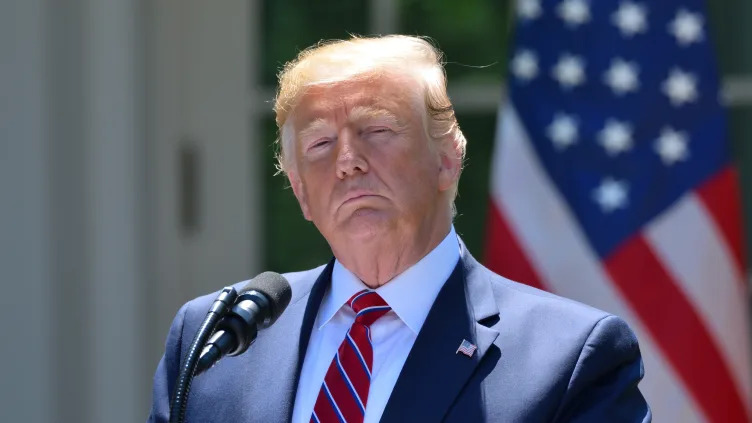(Bloomberg) -- The US Commodity Futures Trading Commission, the underfunded regulator overshadowed by the SEC, has a path to prominence if the incoming Trump administration revamps crypto policy and installs an industry-leaning chair.
Most or all the names that have been circulating as potential contenders to replace Rostin Behnam as head of the derivatives regulator would likely be friendly toward the roughly $3 trillion crypto market. Republican commissioners Summer Mersinger and Caroline Pham have been considered, according to people familiar with the discussions. Others include Joshua Sterling, Jill Sommers and Neal Kumar — former CFTC officials who have worked with digital-asset firms, the people said.
The next chair is set to forge a new path for an agency that’s far smaller and perceived as less potent than the Securities and Exchange Commission, which has taken a hard-line approach against crypto firms. With Republicans controlling Congress and the White House, the agency’s jurisdiction might expand dramatically, including to major tokens like Bitcoin and Ether.
“It will raise the agency’s profile significantly simply because crypto and all technological innovation is going to be at a high visibility under this administration,” said Kari Larsen, a partner at law firm Willkie Farr & Gallagher.
Kumar, Mersinger, Pham, Sommers and Sterling declined to comment. Behnam, who was sworn in as CFTC chair in 2022, hasn’t resigned.
Trump’s transition team didn’t comment on specific plans for the CFTC chair.
“President-elect Trump has made brilliant decisions on who will serve in his second administration at lightning pace,” said Karoline Leavitt, the transition spokeswoman. “Remaining decisions will continue to be announced by him when they are made.”
The crypto community and traditional players in derivatives markets, including banks, brokers and futures exchanges, have a strong ally in Mersinger. She has been a vocal critic of the agency’s enforcement against crypto firms, particularly those focused on decentralized finance — or DeFi — because they haven’t been given clear regulations to help them comply.
The CFTC has too often levied short-term fines and enforcement actions without taking the time to work with the companies and craft rules that might encourage compliance over the long haul, Mersinger has said.
“Using our enforcement authorities against DeFi protocols instead of providing clarity through notice-and-comment rulemaking risks driving responsible DeFi developers overseas to create businesses, jobs and economic activity away from the United States,” she said in a September statement after a CFTC settlement with Uniswap Labs. That leaves behind “the bad actors and criminals who are only interested in taking advantage of American citizens.”
Mersinger has powerful allies on Capitol Hill that include John Thune, a senator from her home state of South Dakota who was recently elected by his peers to serve as majority leader. She was Thune’s top aide from 2004 to 2016 and led the CFTC’s legislative affairs group during the first Trump administration.
Enforcement Critic
Pham, a former Citigroup Inc. managing director, is another possibility for CFTC chair. She’s likewise an advocate for financial innovation and a forceful critic of the agency’s enforcement. As a commissioner, Pham forged a role as a market-structure policy expert. She leads the agency’s Global Markets Advisory Committee, which has explored ways to regulate digital-asset technologies and markets.
Pham has supported concepts such as regulatory “sandboxes,” a sort of safe testing environment for both companies and agencies. For example, crypto firms could experiment with innovations within a limited time frame without fear of enforcement, while the CFTC calibrates its regulatory approaches.
A third possibility is Sterling, an attorney at law firm Milbank who was director of the CFTC’s Market Participants Division during the first Trump administration. The Republican has represented futures exchange Kalshi in its fight with the regulator over the ability to offer election bets.
Another contender is Kumar, a derivatives partner in Willkie’s corporate and financial services practice who has worked extensively on digital-asset issues in addition to traditional futures and swaps. He was a special counsel at the CFTC from 2009 to 2012. His party affiliation wasn’t available.
Sommers is a former Republican CFTC commissioner who served on the five-member body during the throes of the 2008 financial crisis and the implementation of the 2010 Dodd-Frank Act. She was a top lobbyist at the Chicago Mercantile Exchange and currently chairs the derivatives practice group at Patomak Global Partners, a consulting firm for the financial services industry.
Sommers was previously on the board of LedgerX, a CFTC-regulated futures exchange and clearinghouse that was owned by FTX, a crypto exchange that imploded in 2022. LedgerX was one of the few parts of the company to remain solvent and was later purchased by Miami International Holdings.
Rising Profile
The CFTC has long policed the market for derivatives, financial instruments that play key roles in the prices of everything from coffee to crude oil. Its powers expanded in the aftermath of the financial crisis, when complex financial swaps contributed to the economic meltdown.
Under President-elect Donald Trump, the CFTC’s powers could expand if Congress designates it as the primary regulator for Bitcoin and other digital assets that aren’t viewed as securities.
It’s unclear whether any new authority will come with a related increase in funding. The agency’s budget has been frozen for years. The SEC has roughly seven times the number of staff and a fiscal 2025 budget request of $2.6 billion that’s about seven times larger than that of the CFTC.
Trump, along with advisers Elon Musk and Vivek Ramaswamy, have pledged to cull the ranks of the federal workforce and to reduce regulation.
Unlike the SEC, the CFTC has long been more favorably viewed by both political parties. But the broader cost-cutting effort presents a wild card for the CFTC’s crypto prospects, said Gary DeWaal, former senior counsel and derivatives markets specialist at law firm Katten Muchin Rosenman.
“The CFTC is likely already understaffed and underfunded, and they’re going to pick up a brand new extra regulatory responsibility,” DeWaal said. “The question is how they do it.”
--With assistance from Megan Howard and Nancy Cook.






